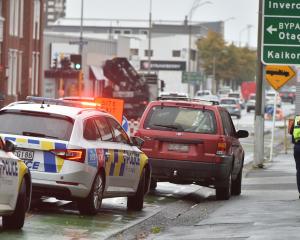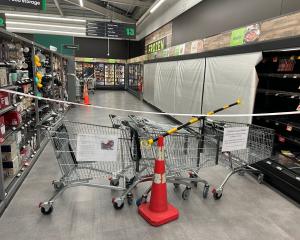Local schools and organisations are pleased with the new cyberbullying law but are also aware that educating people about online safety is just as important.
The Harmful Digital Communications Bill passed its third reading in Parliament last week and is designed to ensure perpetrators of cyberbullying are held accountable for their actions.
Queen's High School principal Di Carter said she was very happy with the legislation.
''It will be important for schoolchildren to know that there is actually a consequence and that there is a law which will be enforced by the police,'' Mrs Carter said.
It was also important for victims of cyberbullying to know there would be consequences for the bullies, she said.
''It's a start; it will show police where they need to develop more.''
Technology and social media played a major role at schools because, regardless of the rules in place, pupils had their own devices and could get whatever they wanted, she said.
''It's up to us to teach them what is right, what is good, what is bad, and how to live in that cyber world. We work closely with families to monitor what is being done on social media. That's the key, I think - parents need to know what their children are up to.''
Port Chalmers School principal Vicki Nicholson said the new law would make people aware that the online environment needed to be the same as everything else.
''You can't yell and shout and scream at somebody on the street and you can't do that online either. The law will strengthen that awareness - that anonymous posts from a computer are really no different from going up to someone and abusing them in person,'' Mrs Nicholson said.
While it was good to have a law against cyberbullying, it was also important to educate people, she said.
''That's not just for children, that's for society as a whole. The whole idea of respect for one another should be in every interaction that we have. Children should be taught to be respectful whether it's face to face, on the phone or on Facebook.''
Anti-cyberbullying project Sticks 'n' Stones was formed in 2012 by a group of Central Otago teenagers to take positive action online to reduce cyberbullying.
Project facilitator Karla Sanders said Netsafe data nationwide stated that one in four pupils aged 11 to 18 were affected by cyberbullying.
''It is a growing issue with sites like Ask.fm and Yik Yak making it easier to bully anonymously. Our students still feel it is not acknowledged ... [enough] because it is not understood or recognised,'' Mrs Sanders said.
The Harmful Digital Communications Act was a positive step in terms of dealing with serious cases of cyberbullying. However, a commitment to education was needed to better support young people, she said.
''Our students feel that we need to commit funding and training to digital citizenship education.''
- by David Beck












